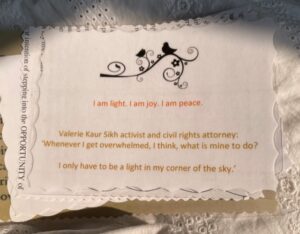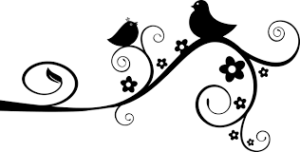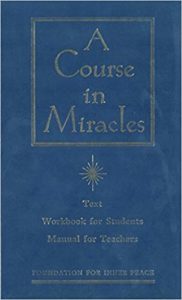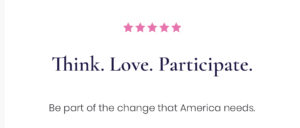A Course in Miracles
‘Don’t look up.’
December 28, 2021See the film, confirming what we have become. More reality than satire, and brilliant. -dayle
“In the councils of government, we must guard against the acquisition of unwarranted influence, whether sought or unsought, by the military-industrial complex. The potential for the disastrous rise of misplaced power exists and will persist.”
-President Dwight D. Eisenhower, January 1961
Aljazeera:
Biden signs enormous US military budget into law
“Congress allocated about $24 billion more than the Biden administration had requested for the military.”
Marianne Williamson, December 26th, 2021
New Year, Zen Mind
The creative power of doing nothing.
In these days between Christmas and New Year’s, our addled brains can take advantage of the opportunity for a much-needed rest. The most powerful somethings emerge from a space of no-thing; like the empty rice bowl often referred to in Eastern philosophies, it is a space left empty for the Tao to fill. The empty rice bowl is what in Zen Buddhism is referred to as the “beginner’s mind” – when ideas and images from the past are let go, thus making way for synapses and connections in the present that would not otherwise be possible. “Be ye as a little child” is much the same concept, with the consciousness of children so powerful precisely because they have no past to drag along with them. They know that they don’t know, which makes them teachable.
There is a saying often heard in AA: “Your best thinking got you here.” Western civilization might want to look at that. With all the geniuses who have lived among us, all the enlightened philosophies and laws that have been passed, all the think tanks and institutions of higher learning that exist — and yet we’re still inches from the cliff. Western materialism and scientific thinking have not in fact delivered humanity from our worst nightmares; it has relieved us of some of them, to be sure, but it has created others. The naive idealism which led us to believe that external powers would be the saviors of humanity has crashed against the wall of ultimate reality, challenging us now to radically rethink. No matter how smart we are – no matter how scientifically or technologically advanced we are, and no matter how much financial or political power we have – without humility we are misguided, without ethics we are blind, and without love we are doomed.
So what do we do? What trick of the outer world does anyone think is going to save us now?
What’s going to save us is a more evolved state of consciousness – a shift in our thinking that takes us beyond the judgement, blame, fear and and negativity that stand like shadows before the light. In A Course in Miracles it says it’s not our job to seek for love, but to seek within ourselves for all the barriers we hold against its coming. That makes all the difference in the world, because miracles occur naturally as expressions of love. When we withhold love, however, we deflect the miracle.
The only antidote to the myriad crises of our times – the hopelessness, cynicism, anger, and nihilism; the environmental degradation, systemic injustices and possible paths to fascism – is a miracle. It’s an inside rather than an outside shift that will expand our awareness, rearrange circumstances on our behalf, and pave the way for new beginnings. It says in A Course in Miracles that “Miracles are everyone’s right, but purification is necessary first.” What we most need to purify are the thoughts that hold us back.
The most powerful thing we can do between now and New Year’s eve is to clear away our impediments to love. That means doing the work, and the work can be messy and difficult. Who have we not forgiven, including ourselves? What are our character defects that make us obnoxious to others and self-sabotaging to ourselves? What are the tricks we play that keep us small and victimized? Where does our disengagement and complacency make us unconscious participants in the downward trends in our society? Where are we selfish, needy, controlling, angry, arrogant…? You get the picture.
This work done by enough of us on a personal, individual level is the path that will lead to global transformation. Only a critical mass of those who love deeply can counteract the power of those who do not love at all.
Love is the natural intelligence that runs the universe. So where there is love, life works pretty well. Things proceed in alignment with the same intelligence that turns acorns into oak trees and embryos into babies. When love is withhold, the system gets jammed and intelligence malfunctions. It still operates, but in an inverted, diseased way. And only when love returns – through atonement and forgiveness – can nature self-correct. “All hands on deck” is better stated “All minds on deck” right now. Each of us affects the whole, with every thought we think and every action that we take.
No one person, piece of legislation, or action of any kind is going to turn things around now.
Human civilization is a very, very big ship that is heading in the wrong direction;
it will take a massive operation to turn it around. That operation is the collective zeitgeist of our time: billions of people all over the planet now responding to a call that is coming from deep within all of us: to do things a different way, to think and be as we have not thought or been before, to let go the past and let the future be made new. And with love.
That’s a lot of work we have to do over the next week, and nothing will help us do it more than spending enough time doing nothing. In the words of Martin Luther King, Jr., “We’re materially passive but we’re spiritually active.”
So must we be now.
Stardust & Consciousness
July 25, 2021Fr Richard Rohr:
Living in a transitional age such as ours is scary: things are falling apart, the future is unknowable, so much doesn’t cohere or make sense. We can’t seem to put order to it. This is the postmodern panic. It lies beneath most of our cynicism, our anxiety, and our aggression.
Chaos often precedes great creativity, and faith precedes great leaps into new knowledge. The pattern of transformation begins in order, but it very quickly yields to disorder and—if we stay with it long enough in love—eventual reordering. Our uncertainty is the doorway into mystery, the doorway into surrender.
Center for Action and Contemplation teacher Barbara Holmes:
The crisis begins without warning, shatters our assumptions about the way the world works, and changes our story and the stories of our neighbors. The reality that was so familiar to us is gone suddenly, and we don’t know what is happening. . . .
If life, as we experience it, is a fragile crystal orb that holds our daily routines and dreams of order and stability, then sudden and catastrophic crises shatter this illusion of normalcy. . . . I am referring to oppression, violence, pandemics, abuses of power, or natural disasters and planetary disturbances. . . .
I consider crisis contemplation to be an aspect of disorder that prepares communities for a leap toward the future. This is a leap toward our beginnings. We are not just organisms functioning on a biological level; our sphere of being also includes stardust ☆ and consciousness. We all have a spark of divinity within, a flicker of Holy Fire that can be diminished, but never extinguished.
Knock Knock,
who’s there?
Mystery and Surrender.
Please, invite me in.
- Order
- Disorder
- Reorder
“Chaos often precedes great creativity.”
K
A
I
R
O
S
“People are attracted to that that makes them feel love.”
-Marriane Williamson, A Course in Miracles
Try. Intersect great ℒℴve love with great surrender.
Inhale.
jai
A meditation from Megan McKenna on the importance of translation. Scholar and author Neil Douglas-Klotz has worked for decades with the Aramaic language, which Jesus most likely spoke as a first-century Jewish man from Nazareth. Because translation is never an exact science, Dr. Douglas-Klotz offers several possible understandings of Jesus’ teaching “Blessed are they that mourn, for they shall be comforted.”
Blessed are those in emotional turmoil; they shall be united inside by love.
Healthy are those weak and overextended for their purpose; they shall feel their inner flow of strength return.
Healed are those who weep for their frustrated desire; they shall see the face of fulfillment in a new form.
Aligned with the One are the mourners; they shall be comforted.
Turned to the Source are those feeling deeply confused by life; they shall be returned from their wandering.
Dr. Douglas-Klotz continues:
Lawile can mean “mourners” (as translated from the Greek), but in Aramaic it also carries the sense of those who long deeply for something to occur, those troubled or in emotional turmoil, or those who are weak and in want from such longing. Netbayun can mean “comforted,” but also connotes being returned from wandering, united inside by love, feeling an inner continuity, or seeing the arrival of (literally, the face of) what one longs for.
Dr. Douglas-Klotz offers this embodied prayer practice to help readers sense the powerful message of this beatitude.
When in emotional turmoil—or unable to clearly feel any emotion—experiment in this fashion: breathe in while feeling the word lawile (lay-wee-ley) [longing]; breathe out while feeling the word netbayun (net-bah-yoon) [loving]. Embrace all of what you feel and allow all emotions to wash through as though you were standing under a gentle waterfall. Follow this flow back to its source and find there the spring from which all emotion arises. At this source, consider what emotion has meaning for the moment, what action or nonaction is important now.
#Marianne
September 3, 2019Please read.
♡
“By then, she was beginning to wonder if this system was broken — if, in fact, a presidential campaign was designed to keep outsiders out, which is the opposite of democracy. “People would say, ‘You’re out of your depth,’ ” she said. “I feel I’m in my depth. A deeper conversation is in the depth. I’m the only one who mentioned American foreign policy in Latin America. I’m the only one who mentioned that our health care system is basically a sickness care system. I’m the only one who mentioned what Donald Trump is actually doing, collectivizing fear, and what it will take to override that. So was I out of my depth? Or is the conversation that was being promoted there not chronically superficial? And any conversation which is in fact of depth is made to appear silly?”
NY TIMES
9.3.19
FEATURE
The Gospel According to Marianne Williamson
Do spirituality and self-help have a political constituency?
he first problem with Marianne Williamson is what do you call her. The other candidates for the Democratic presidential nomination lead with their impressive elected titles: “Governor,” “Senator,” “Mayor.” She’s a lot of fancy things herself: a faith leader, a spiritual guide on “The Oprah Winfrey Show,” a New Age guru. But she knows that when people use terms like that outside the nearly $10 billion self-help industry, where a person like her is sought, they mean it to dismiss her. So while everyone else has dignified titles of experience to stick onto their lapels and on chyrons for the debates (all except Andrew Yang, who is a “former tech executive,” but it doesn’t really matter what he’s called because he’s running on a platform of giving each American $1,000 per month for life), she settled on, simply, “author.” Author is accurate, if not the whole story.
Williamson is also a politician now, and on the weekend after Independence Day, she was doing what politicians do, which is visit citizens gathered at people’s homes (and on peach farms and at ice-cream socials) and make a case to the American people, one group of interested voters at a time. There she stood, tiny and regal, on the breathtaking porch of someone else’s breathtaking home in New Castle, N.H., right on the river, giving a civics lesson not about her specific policies; those were all on her website, under the label “The Issues Aren’t Always the Issue.” She was talking about how she could beat Donald Trump.
She told the crowd the story of David and Goliath, about how she’s going to be like David and defeat Trump with just a slingshot. “We’re going to get him right between the eyes,” she said. “David got Goliath in his third eye, where he wasn’t prepared — where he had no defense.” The third eye, she explained, was Trump’s ego and his inability to see clearly. It was his instinct to divide the country along the old fault lines of hatred and greed and apathy toward suffering. The slingshot, which was small but mighty, was, of course, love. Love was her entire platform. She believed that if we were to look at all the country’s problems through the prism of love, we could undo everything from poverty to climate change to the immigration crisis.
Everyone talked about the issues. She wanted to talk about how we could have prevented these issues — how we could undo them if we got to the root of all these problems. “People who are so depressed because they don’t know how they’re going to ever get out of this college loan. People who were so depressed because they don’t know what’s going to happen if they get sick. People who are so depressed because they don’t know how they’re going to send their kids to college. People who are so depressed because they’re so afraid that their child is going to get picked up by the policemen and there’s absolutely nothing they can do no matter how much they try to raise a good kid and even have a good kid. People working with refugees, people working with immigrants, veterans, traumatized children, drug addicts. Everything I just mentioned has the fingerprints of public policy — irresponsible, reckless public policy.”
She has a patrician, mid-Atlantic accent that she has taped over her Texan accent — she was raised in Houston. She talks so fast, like a movie star from the ’40s, no hesitations, as if the thoughts came to her fully formed with built-in metaphors, or sometimes just as straight-up metaphors in which the actual is never fully explained. (“Am I pushing the river? Am I going with the flow? Am I trying to make something happen, or am I in some way being pushed from behind?”) She is prone to exasperated explosions of unassailable logic (“The best car mechanic doesn’t necessarily know the road to Milwaukee!”). A thing she loves to say is: “I’m not saying anything you don’t already know.” This is the self-help magic ne plus ultra, a spoken thing that rings inside your blood like the truth, a thing you knew all along, like ruby slippers you were wearing the whole time.
She finished her speech in New Hampshire to great applause and asked for questions, but nobody wanted to know how “a politics of love,” as she called it, would handle, say, President Vladimir Putin’s annexing Crimea, or how it would prevent a mass shooting, which were things she had thought about deeply and had specific and elaborate plans for. They didn’t want to know about her Department of Children and Youth or her Department of Peace. No, they wanted self-help. A woman raised her hand and said she didn’t know what to do about her trauma and her rage these days — how she couldn’t find forgiveness for the people who voted for Trump, even though those people weren’t exactly asking for it. “It’s like I’ve been infected,” the woman said. “How do I manage that?”
Williamson told her she has no time for people traumatized by the election. She asked the crowd to consider the trauma of the suffragists, who were force-fed through tubes when they were put into jails. She asked them to consider the trauma of the black protesters who took their lives in their hands when they marched in Selma. And she has even less time for people who think that anger is a productive emotion. Anger, she has said, is the white sugar of activism. It’s a good rush, but it doesn’t provide nourishment.
“Your personal anger depletes you,” she told the woman, her X-Acto-knife jaw jutted outward and her head high. “Trump isn’t the problem. The system of complacency is the problem.” The problem was apathy toward the entire revolutionary nature of this country — the radicalism of the Constitution, the power that it gave every single American. “Don’t hate Trump,” she beseeched the woman. “Love democracy.”
Self-help made Marianne Williamson, who is 67, famous. It was the number of selves she had helped in her 38-year career, and after selling over three million books, that made her feel she was qualified to take on the world’s problems. Rather than solving suffering one theater full of self-selecting audience members at a time, she could focus on alleviating suffering on a much larger scale. She was not concerned by the scoffings about her inexperience. Every time I heard her speak, she said: “I challenge the idea that only people whose careers have been entrenched for decades in the limitations of the mind-set that drove us into this ditch are the only ones we should consider qualified to take us out of the ditch.”







